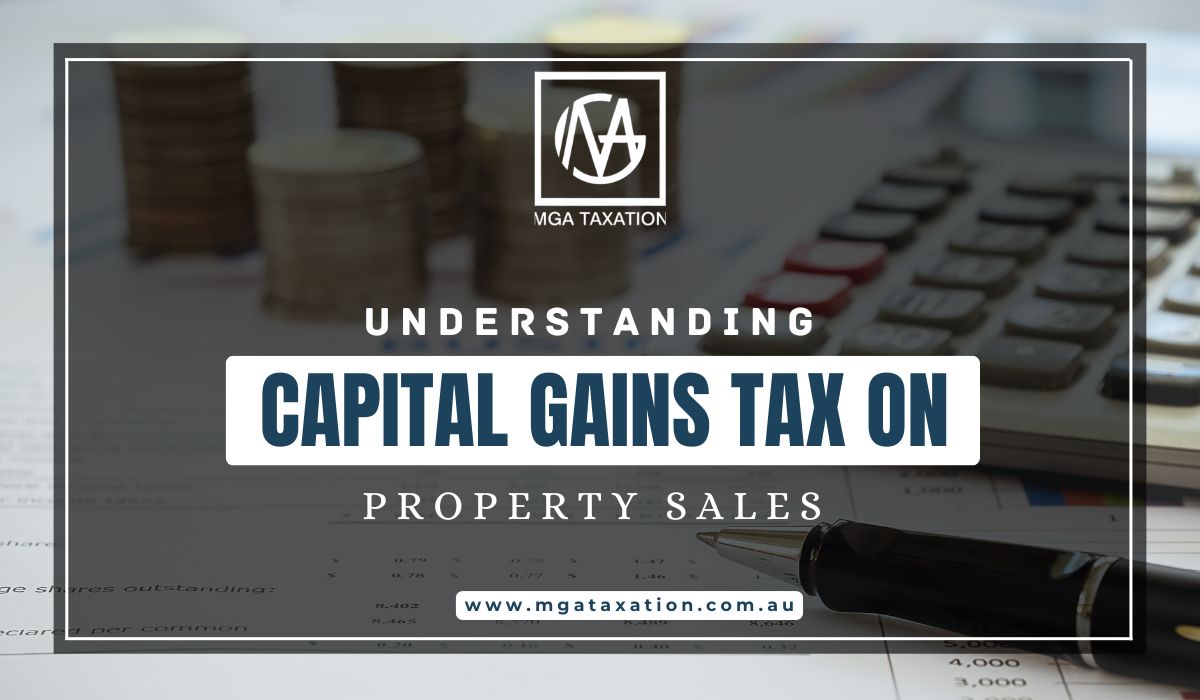Selling property can be an exciting prospect, potentially unlocking significant wealth. However, for many, the joy of a successful sale can quickly turn to confusion when it comes to Capital Gains Tax (CGT). This isn’t a separate tax, but rather an integral part of your income tax, and mishandling it can lead to unexpected liabilities, penalties, or even missed opportunities to legitimately reduce your tax bill.
To ensure you navigate the property sale landscape smoothly and keep more of your hard-earned profit, here are some common CGT mistakes to steer clear of:
Common Mistakes to Avoid
1. Misunderstanding the Main Residence Exemption
This is arguably the most common pitfall. Many assume that if they sell their primary home, they’re automatically exempt from CGT. While generally true, there are crucial conditions. Your property must have been your actual home for the entire period you’ve owned it, and it shouldn’t have been used to produce income.
Key things to watch out for:
- Partial Use for Income: If you’ve ever rented out a room, run a home-based business, or used the property for income-generating activities, your exemption might be partial.
- The “6-Year Rule”: If you’ve moved out of your main residence and rented it out, you might still qualify for a full exemption for up to six years, provided you haven’t nominated another property as your main residence during that time. This rule resets if you move back in. Don’t assume it applies automatically understand the conditions!
- More than 2 Hectares: If your home is on land larger than 2 hectares, a full exemption may not apply to the entire property.
- Foreign Residents: Strict rules apply to foreign residents, who generally can only claim the main residence exemption if they meet a “life events test” (e.g., terminal medical condition, death of a spouse/child).
2. Failing to Accurately Calculate Your Cost Base
Your “cost base” isn’t just the purchase price. It includes a range of eligible expenses that can reduce your capital gain and, consequently, your tax. Neglecting to include these can significantly inflate your taxable profit.
What to include in your cost base:
- Incidental costs of acquisition and disposal: Stamp duty, legal fees, agent commissions, advertising costs.
- Ownership costs (for investment properties): Interest on loans, council rates, land tax, insurance, and maintenance if they haven’t already been claimed as income tax deductions.
- Capital improvements: Costs of renovations, extensions, or significant upgrades that add to the property’s value.
Mistake to avoid: Forgetting to include eligible expenses, or incorrectly including expenses that were already claimed as a deduction against rental income.
A knowledgeable tax accountant can help ensure nothing is missed when calculating your cost base.
3. Not Keeping Meticulous Records
This is fundamental. Without proper documentation, you’ll struggle to prove your cost base and any eligible exemptions or discounts if the tax authorities come knocking.
Essential records to keep:
- Purchase contract and settlement statements
- All receipts for eligible expenses (legal fees, stamp duty, agent fees, advertising)
- Invoices and records for all capital improvements (renovations, additions)
- Loan documents
- Records related to any periods the property was rented out (rental agreements, depreciation schedules)
- Valuations (especially if your main residence later became an income-producing property)
Mistake to avoid: Relying on memory or incomplete records. Keep everything organised and accessible for at least five years after the sale.
4. Misunderstanding the 50% CGT Discount
If you’ve held your property for more than 12 months, you’re generally eligible for a 50% discount on your capital gain. This can halve your taxable gain. However, it’s not always straightforward.
Things to remember:
- This discount applies after any capital losses have been applied.
- Companies are not eligible for this 50% discount.
- Self-Managed Super Funds (SMSFs) have a different discount rate.
Mistake to avoid: Incorrectly applying the discount or forgetting to apply it altogether.
5. Getting the Timing Wrong
The “CGT event” (when the capital gain arises) typically occurs when you enter into the contract of sale, not at settlement. This can impact which financial year you need to report the gain in, and therefore, which year’s tax rates apply.
Strategic considerations:
- Selling in a low-income year: If possible, timing your sale for a year when your overall income is lower (e.g., during a career break or retirement) can reduce your marginal tax rate on the capital gain.
- Spreading sales: If you have multiple properties, staggering their sales over different financial years might help manage your overall tax liability.
Mistake to avoid: Assuming CGT is due at settlement or miscalculating the financial year the gain belongs to.
6. Overlooking Capital Losses
If you’ve incurred capital losses from selling other assets, you can use these to offset your capital gains. If your losses exceed your gains, you can carry them forward to future years to reduce future capital gains.
Mistake to avoid: Not identifying or utilising past or current capital losses to reduce your current tax bill.
Smart Ways to Minimise What You Owe
Beyond avoiding common mistakes, here are some proactive strategies to legitimately reduce your CGT liability:
1. Strategic Ownership Structures
The way you own a property can significantly impact your CGT. While individuals and trusts can benefit from the 50% CGT discount, other structures have different implications:
- Self-Managed Super Funds (SMSFs): Investment properties held within an SMSF can have concessional tax rates. If sold in the accumulation phase, capital gains are taxed at 10% (after the 33.3% discount). If sold when the fund is in pension phase, the capital gain can be entirely tax-free.
- Family Trusts: Trusts offer flexibility in distributing capital gains to beneficiaries with lower marginal tax rates, potentially reducing the overall tax paid by the family unit.
- Companies: Companies generally pay a flat company tax rate on capital gains (currently 30%), which might be lower than a high individual marginal tax rate, but they don’t receive the 50% CGT discount.
Consideration: The optimal structure depends on your circumstances, long-term goals, and overall financial situation. Always seek a professional tax adviser before setting up or changing ownership structures.
2. Revalue Before Renting (if applicable)
If you decide to move out of your main residence and turn it into an investment property, obtaining a market valuation at the time it becomes income-producing can be highly beneficial. This re-establishes the “cost base” for CGT purposes from that date, meaning you only pay CGT on the capital growth from when it became an investment, rather than from your original purchase price. This can significantly reduce your taxable gain if the property has appreciated since you first bought it.
3. Maximise Capital Improvements
As mentioned earlier, capital improvements add to your cost base. This isn’t just about lavish renovations; it includes any significant work that improves the value of the property, not just repairs. Keep detailed records and receipts for all such expenditures, as they directly reduce your capital gain.
4. Make Superannuation Contributions
If you’re selling an investment property and facing a significant capital gain, consider making a concessional (pre-tax) contribution to your superannuation fund. These contributions are generally taxed at a lower rate (15%) within your super fund, potentially offsetting a portion of your capital gain that would otherwise be taxed at your marginal income tax rate. Be mindful of your annual contribution caps.
5. Utilise the Small Business CGT Concessions
If you’re selling a property that has been used as an active business asset, you might be eligible for a range of small business CGT concessions. These can include a 15-year exemption, 50% active asset reduction, retirement exemption, or a small business rollover, potentially eliminating or significantly reducing your CGT liability. These are highly specific and require expert advice.
Capital Gains Tax on property sales can be complex, but by understanding the common pitfalls and taking proactive steps, you can significantly reduce your tax liability and ensure compliance. Always remember that specific circumstances can vary, so consulting with a qualified tax return agent can provide tailored guidance, ensuring you leverage all available benefits. Don’t hesitate to reach out to tax experts to help you navigate these intricate rules and avoid costly errors.
Don’t let a simple mistake cost you thousands!
For personalised advice on how Capital Gains Tax applies to your property sale and to ensure you avoid costly mistakes, get in touch with our expert team today. MGA Taxation is here to guide you through every step of the process. Call us on 0406 137 770. We’re ready to help you make smart, informed decisions.


